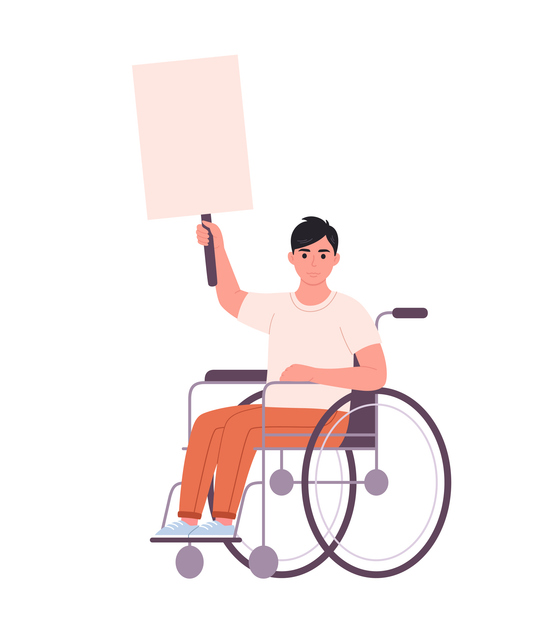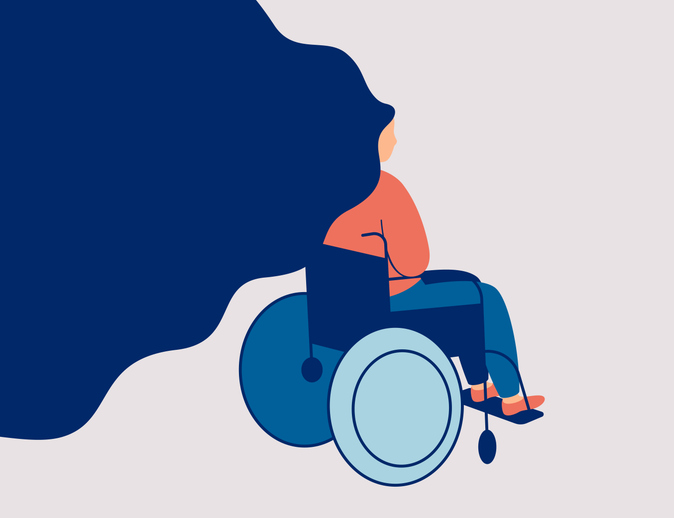
Manifestos and the Disability Vote
Did Political Parties Make the Connection?
**Rahul Bajaj and Somya Jain
What drives the voting choices of persons with disabilities [PwDs]? As the 18th Lok Sabha elections draw to a close, around one crore registered voters with disabilities have likely cast their ballots by now. What promises have political parties made to persons with disabilities this time to earn their votes? To uncover the answer, we must delve into their 2024 election manifestos.
What do persons with disabilities want?
Prior to the commencement of this year’s election process, several disability advocacy groups vocalized their concerns and articulated their requests to political parties. Notably, the National Centre for Promotion of Employment for Disabled People released “Manifesto for and by Citizens with Disabilities”, garnering endorsement from several disability rights groups. The manifesto’s key demands include a 5% budgetary allocation for PwDs, universal accessibility, a disability pension of Rs. 5000 per month, affordable and accessible health insurance, constitutional protection against discrimination under Article 15, and a 5% reservation at all levels of governance.
Another “Charter of Demands Of, By, and For Persons with Disabilities” co-drafted by disability rights activists and other relevant stakeholders brought forward key demands such as accessible and inclusive education, equal opportunity for employment, entrepreneurship and livelihood, political representation and consultative policy making, among others. Though there are myriad challenges affecting the lives of PwDs, their chief focus is demands centred on fundamentals such as equality, non-discrimination, education, employment, health, and social security.
What do manifestos hold for persons with disabilities?
From the standpoint of PwDs, the manifestos of political parties this time around represent a spectrum of commitments, reflecting varied levels of attention and detail.
Bhartiya Janata Party – The 76-page BJP manifesto list two key promises for PwDs i.e., affordable indigenous assistive devices and affordable housing priority under the PM Awas Yojana. The number of commitments the BJP made for PwDs has decreased compared to their 2014 and 2019 manifestos. However, they have made significant efforts to implement many of these previous promises. These include improvements in education, creation of a universal ID, enhancing accessibility in the built environment, conducting continuous accessibility audits, early identification of disabilities, and promoting financial inclusion through the enactment of the Rights of Persons with Disabilities Act, 2016 (RPWDA) and initiatives like the Accessible India Campaign. The implementation of these programmes continues to remain work in progress.
Indian National Congress – The 48-page INC manifesto makes 9 commitments for the advancements of the rights of PwDs. The most notable ones include increasing disability pension to Rs. 1000 per month, extending the constitutional guarantees under Article 15 and 16 of the Constitution to PwDs, ensuring representation of persons with disabilities in local government bodies, formulating schemes for assisted living and care centers and ensuring strict enforcement of RPWD A. While their 2014 manifesto had broad promises of healthcare, education and housing, the 2024 manifesto, much like the 2019 manifesto, is progressive and more aligned with the demands of PwDs.
Communist Party of India (Marxist) – The 44-page CPI(M) manifesto devotes almost a page to PwDs and makes 14 promises including reservation in private sector, free kitchen for PwDs, disability budgeting, strict compliance with RPWDA, removal of GST on aids and appliances, speedier certification process, and constitutional guarantees under Article 15 and 16 of the Constitution. While CPI(M) has largely carried forward their promises from the 2014 and 2019 manifestos, they have also incorporated the demands raised by disability groups and released their 2024 manifesto in sign language, which is a great initiative but is sadly not the norm at present.
In addition, the 2024 manifesto of Dravida Munnetra Kazhagam also includes three promises for PwDs, the most notable one being establishment of National Centers for PwDs.
Do the manifestos go far enough?
The focus on PwDs, through making promises – some generic and some thoughtful and nuanced – is a welcome step. There are some critical issues that each of the above manifestos miss, 3 of which we would like to flag below.
First, the manifestos could have displayed more nuance and ingenuity, focusing on the actual enforcement of the rights of PwDs instead of general promises. For example, in 2026, the RPWDA will complete a decade, so a commitment to setting up a commission to review its implementation and suggest measures for its improvement could have been a great addition to the manifestos.
Second, the Central Government is in the process of drafting a new National Disability Policy, to replace the existing 2006 policy. This policy should ideally serve as a roadmap for the better implementation of the RPWDA, to bridge the gap from principle to practice. It is unfortunate that this policy shift is not on the radar of any political party.
Lastly, as lawyers, we are taught that where there is a right, there must be a remedy. And yet, the Disability Commissions set up under the RPWDA arguably only have recommendatory powers, giving rise to the widespread belief that they are toothless tigers. The manifestos would have done well to focus on giving these Commissions the power to punish those who cock a snook at their orders.
As we look to the future, it is imperative that the party assuming power turns these promises and demands into tangible actions, transforming the rhetoric of rights into the reality of lived experiences for PwDs in India. The measure of a society lies in how it treats its most marginalized members, and the time for meaningful change is now.
The authors are fellows with the Vidhi Centre for Legal Policy.




